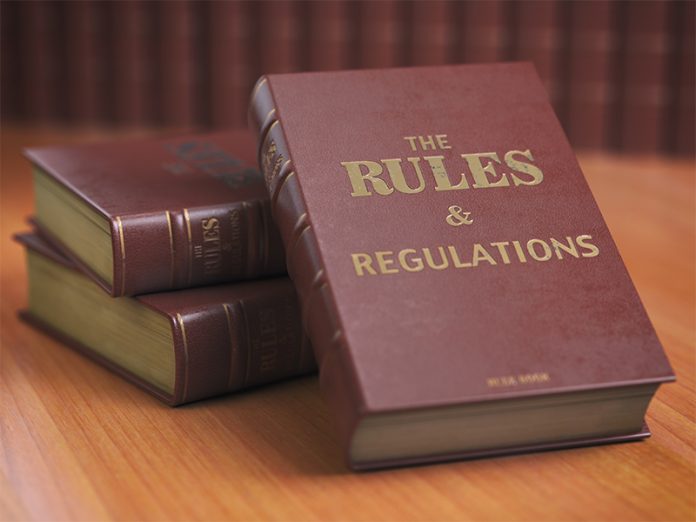This article is written by J Jerusha Melanie pursuing BA LL.B (Hons.) from SRM School of Law, Kattankulathur, Chengalpattu, Chennai and the article has been edited by Khushi Sharma (Trainee Associate, Blog iPleaders).
Table of Contents
Introduction
Every company has a separate legal personality of its own. It is born the day it is incorporated and dies the day it gets wound up. The same goes for any banking company since it is incorporated under the Companies Act, 2013.
India has a vast population. All their financial needs are met by a lot of banking companies in India. Similarly, an enormous amount of money is deposited with the banking companies. So, to ensure that citizens’ hard-earned money is vested in the hands of reliable banking companies, the Reserve Bank of India (RBI) regulates their activities as per the Banking Regulation Act 1949. Along with regulating their general activities, the RBI also governs the banking companies’ winding-up process. Such processes are governed by the Banking Regulation Act 1949, not the Companies Act, 1956.
Let’s discuss the provisions of the winding-up of banking companies under the Banking Regulation Act 1949.
Ways to wind up a banking company
Part III of the Banking Regulation Act 1949 (hereafter referred to as “the Act”) deals with the suspension of business and winding-up of banking companies. Section s 38 to 44 exclusively deal with the winding up of such companies. There are two ways by which the process to wind up any banking company can be initiated, which are:
1. Winding up by the High Court, and
2. Voluntary winding up.
The general rule for liquidating any banking company’s assets was given in the landmark case Mann v. Goldstein [1968] 1 WLR 1091; in this case, it was held that whenever any banking company is unable to pay off its debts it should avail the aid of judicial proceedings.
- Winding up by the high court:
Part III Section 38 to 43 exclusively deal with the winding up of banking companies by the High Court (hereafter referred to as “The Court”). The High Court mentioned under these sections denote the High Court exercising jurisdiction in the place where the registered office of the banking company in concern is situated; if it is a banking company incorporated outside India, then the High Court exercising jurisdiction in the place where the principal office of such company is located would be the mentioned High Court.
Section 38(1) of the Act provides the grounds based on which the Court shall order a banking company to wound up. The grounds are:
1. The banking company is unable to pay its debts, or
2. RBI applies for the winding up of such s company under s.37 of the Act.
Section 37 of the Act
Section 37 of the Act deals with the suspension of the banking company if it is temporarily unable to meet its obligations. On the application submitted by such a company, the High Court can make an order to stay any actions or proceedings against the banking company for a fixed period, not exceeding six months. The Court must furnish a copy of the stay order to RBI.
Section 37 of the Act also states that the said application must be filed along with the report of RBI stating that such a banking company would be able to pay off its debts if the application is granted. However, it is not needed if the High Court is convinced by sufficient reasons; under such a situation the stay order can be granted even without the RBI’s report. But the report should be submitted during the suspension period.
When the application is filed by the banking company to the Court under Section 37, the Court may appoint a special officer to take into his control all the assets, books, documents, etc. of the banking company.
During the suspension, if the RBI finds that the affairs of the company are detrimental to the depositors, it can make an application to the Court for it to be wound up as per section 38 of the Act.
Grounds on which the RBI can apply to the Court for a banking company’s wind up
The grounds on which the RBI can file an application to the Court for any banking company’s wind up are provided under section 38(3) as:
1. The banking company-
a. Has failed to comply with the requirements as in Section 11; or
b. Has become disentitled to carry on banking business in India under Section 22; or
c. Has been prohibited from receiving fresh deposits by an order under Section 35(4)(a) or Section 42(3A)(b) of the Reserve Bank of India Act, 1934 (2 of 1934); or
d. Has failed to comply with any other requirement of the Act and has continued such failure; or
2. As per the opinion of RBI, –
a. A compromise or arrangement sanctioned by a court concerning the banking company cannot be satisfied with or without modifications; or
b. The returns, statements, or information furnished by the banking company to RBI disclose that it is unable to pay its debts; or
c. The continuance of the banking company is prejudicial to the interests of its depositor.
Court Liquidator/ Official Liquidator
A Court Liquidator is appointed by the Central Government and attached to every High Court under Section 38A of the Act.
However, under Section 39, if the RBI applies to the Court, the RBI, the State Bank of India, or any other bank as notified by the Central Government shall be appointed as the Official Liquidator. If such a Liquidator is appointed, then the Court Liquidator must vacate the office.
The main functions of the Official Liquidator are to:
- Collect and take into his custody the assets of the banking company,
- Submit a preliminary report to the Court, and
- Conduct the winding-up proceedings.
Notice to preferential claimants
As per Section 41A, the Official Liquidator is must serve a notice to the following persons within 15 days from the date on which the winding-up order is made:
- Preferential claimants under Section 530 of the Companies Act, 1956 (1 of 1956), including the Central Government, any State Government, employees of the banking company, etc., and
- Secured and unsecured creditors.
Under Section 41A(2), the preferential claimants to whom the notice is served are mandated to send the liquidator the statement concerning the amount claimed by them, within one month from the date of the service to be eligible for claiming preferential payment.
Also, under Section 41A(3), the secured creditors to whom the notice is served are mandated to send the liquidator within one month of the service the amount of their claim along with the value of the security. If they fail to send it, the valuation made by the liquidator is final.
Preliminary report by the Official Liquidator
Section 41 of the Act provides that the Official Liquidator must submit a preliminary report to the Court within two months from the date on which the winding-up order was made. The report must contain the information available to him regarding the following:
- The number of assets of the concerned banking company (in cash) which are under the custody of the liquidator on the date of the report submission, and
- The number of assets of the concerned banking company that is likely to be collected (in cash) before the expiry of the said two months.
This report is needed to estimate the assets that can be used to make speedy payments, and discharge the banking company’s liabilities to their depositors and creditors.
Preferential payment to depositors
Section 43A of the Act deals with preferential payment. It states that the preferential claimants to whom Notice was served under Section 41A and had responded within one month from its service will get priority for preferential payment. Such payment will be made or initiated by the liquidator within three months from the date on which the winding-up order is issued by the Court.
After the preferential claimants, within the same three months, the depositors in every savings bank account will be paid INR 250/- or the balance at their credit, whichever is less.
After them, all the other depositors will be paid INR 250/- or the balance at their credit, whichever is less.
The remaining assets of the banking company available for payment to general creditors shall be utilized for payment on a pro-rata basis of the debts of the general creditors; the remaining shall be given to the due depositors.
The banking company will finally wind up after settling all the payments required to be made under the Act.
The other mode of winding up a banking company is by way of voluntary winding up, which is discussed below.

2. Voluntary winding up:
Section 44 of the Act deals with the voluntary winding up of banking companies. It states that a banking company can voluntarily wind up only if RBI furnishes a written certification stating the company can pay off all its debts. Meaning, a written certificate by RBI must accompany any application filed by a banking company to the Court for its voluntary winding up. Further, Court has the power to order the voluntary wind up to continue on its supervision.
While the voluntary winding up is in process, the Court, on its own motion or the application of RBI, can order winding up by the Court itself (that is, as under Section 38 of the Act) on the following grounds:
- The banking company is unable to pay off its debts during the voluntary winding-up process; or
- When the banking company is undergoing the voluntary winding up under the supervision of the Court, the Court finds that the winding-up cannot take place without having any detrimental effect on the depositors.
Conclusion
The winding-up of banking companies refers to the end of the business of any banking company. The procedure to wind up any banking company is provided under Section 38- 44 of the Banking Regulation Act, 1949. The process can be initiated by both the banking company itself or the High Court. Either way, the main reason why such winding up is regulated by the Govt. and RBI is because a vast number of citizens keep their hard-earned money there and that the Government must ensure people get their rightful money.
References
- The Banking Regulation Act, 1949 [Act No. 10 of 1949] [As amended by The Banking Regulation (Amendment) Act, 2017] (30 of 2017)
- The Companies Act, 1956 [Act No. 1 Of 1956] [ 18th January, 1956]
- The Companies Act, 2013 [Act No. 18 Of 2013]
- Reserve Bank of India Act, 19341 [Act No. 2 Of 1934]
- Reserve Bank of India (rbi.org.in)
- Goldstein v. State :: 2006 :: Court of Appeals of Georgia Decisions :: Georgia Case Law :: Georgia Law :: US Law :: Justia
- Dictionary by Merriam-Webster: America’s most-trusted online dictionary
LawSikho has created a telegram group for exchanging legal knowledge, referrals and various opportunities. You can click on this link and join:
https://t.me/joinchat/J_0YrBa4IBSHdpuTfQO_sA
Follow us on Instagram and subscribe to our YouTube channel for more amazing legal content.
 Serato DJ Crack 2025Serato DJ PRO Crack
Serato DJ Crack 2025Serato DJ PRO Crack










 Allow notifications
Allow notifications


